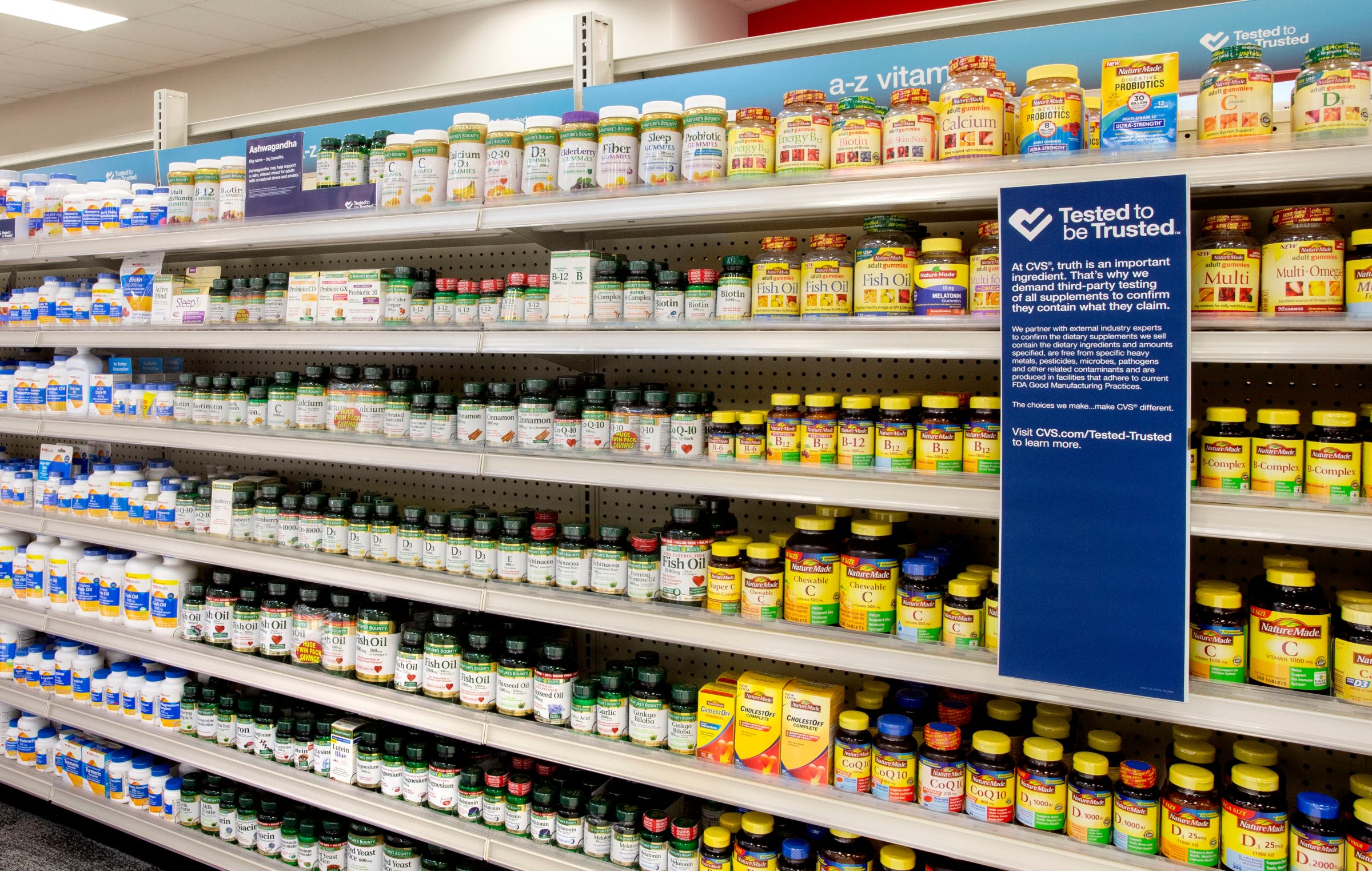
CVS Pharmacy announced May 15 that it will only sell vitamins and supplements that have been third-party-tested for safety and label accuracy, in an effort to bring order to the notoriously under-regulated world of health and dietary aids.
The U.S. Food and Drug Administration does not vet the contents of vitamins and supplements. The agency primarily intervenes when problems are reported and a product needs to be removed from the market, so supplements can hit stores bearing their manufacturer’s unchecked claims. Studies have shown that many supplements for sale—particularly those intended for weight-loss—may be dangerous to consume. Some have even been found to be tainted with substances similar to amphetamine.
CVS’ program is meant to help combat those issues. “We thought there was a real gap in making sure that people could trust that what’s on the label actually reflected what’s in the bottle,” says George Coleman, CVS’ senior vice president of merchandising.
As of May 15, all 1,400 vitamins and health supplements sold online and in CVS stores, including multivitamins, protein powders, pain relievers, digestive aids and more, were required to go through third-party testing. Some manufacturers already have their products certified by third-party groups like NSF International, an independent product testing and inspection firm, and U.S. Pharmacopeia, a nonprofit working to ensure the quality and safety of foods and medicines. While these seals do not guarantee efficacy, they do confirm that a product’s label is accurate and that it is not contaminated, according to the National Institutes of Health’s Office of Dietary Supplements. Both groups also inspect facilities to make sure they’re following good manufacturing practices.
To comply with CVS’ new rules, manufacturers had to pay for testing of any product not already validated by these groups, through either NSF or Eurofins, a laboratory that specializes in food, pharmaceutical and environmental testing. Each product was tested to ensure its ingredients matched those listed on its label, and was free of contaminants and unnecessary additives. Every supplement product CVS sells will undergo periodic testing moving forward, Coleman says.
About 7% of the products that went through testing failed, the company says. These were either removed from CVS’ shelves or their makers updated their labels or formulas, Coleman says.
Still, CVS’ program cannot guarantee the vitamins and supplements it sells are beneficial to consumers’ health. The testing is meant to confirm that “what’s on the label is what’s in the bottle, and it’s safe,” Coleman says. “We’re not making efficacy claims. That would be redefining the supplement category.”
The efficacy of vitamins and supplements, as a class, is dubious. One study published last month, for example, found that nutrients from dietary supplements are not as beneficial as those consumed through food, and that taking high doses of calcium and vitamin D supplements was associated with an increased risk of premature death. Other studies have also found efficacy issues with specific products, including calcium, omega-3 and vitamin D supplements.
The Academy of Nutrition and Dietetics, a professional group for nutrition experts, recommends supplement use for those who can’t meet their nutritional needs through diet alone, perhaps because of age, lifestyle habits, religious beliefs or dietary restrictions. But “the routine and indiscriminate use of micronutrient supplements for the prevention of chronic disease is not recommended,” the group says, “given the lack of available scientific evidence.”
More Must-Reads from TIME
- Donald Trump Is TIME's 2024 Person of the Year
- Why We Chose Trump as Person of the Year
- Is Intermittent Fasting Good or Bad for You?
- The 100 Must-Read Books of 2024
- The 20 Best Christmas TV Episodes
- Column: If Optimism Feels Ridiculous Now, Try Hope
- The Future of Climate Action Is Trade Policy
- Merle Bombardieri Is Helping People Make the Baby Decision
Write to Jamie Ducharme at jamie.ducharme@time.com